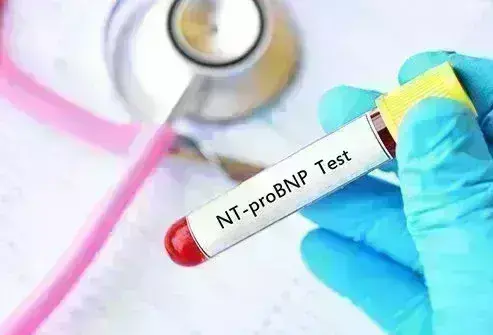- Home
- Medical news & Guidelines
- Anesthesiology
- Cardiology and CTVS
- Critical Care
- Dentistry
- Dermatology
- Diabetes and Endocrinology
- ENT
- Gastroenterology
- Medicine
- Nephrology
- Neurology
- Obstretics-Gynaecology
- Oncology
- Ophthalmology
- Orthopaedics
- Pediatrics-Neonatology
- Psychiatry
- Pulmonology
- Radiology
- Surgery
- Urology
- Laboratory Medicine
- Diet
- Nursing
- Paramedical
- Physiotherapy
- Health news
- Fact Check
- Bone Health Fact Check
- Brain Health Fact Check
- Cancer Related Fact Check
- Child Care Fact Check
- Dental and oral health fact check
- Diabetes and metabolic health fact check
- Diet and Nutrition Fact Check
- Eye and ENT Care Fact Check
- Fitness fact check
- Gut health fact check
- Heart health fact check
- Kidney health fact check
- Medical education fact check
- Men's health fact check
- Respiratory fact check
- Skin and hair care fact check
- Vaccine and Immunization fact check
- Women's health fact check
- AYUSH
- State News
- Andaman and Nicobar Islands
- Andhra Pradesh
- Arunachal Pradesh
- Assam
- Bihar
- Chandigarh
- Chattisgarh
- Dadra and Nagar Haveli
- Daman and Diu
- Delhi
- Goa
- Gujarat
- Haryana
- Himachal Pradesh
- Jammu & Kashmir
- Jharkhand
- Karnataka
- Kerala
- Ladakh
- Lakshadweep
- Madhya Pradesh
- Maharashtra
- Manipur
- Meghalaya
- Mizoram
- Nagaland
- Odisha
- Puducherry
- Punjab
- Rajasthan
- Sikkim
- Tamil Nadu
- Telangana
- Tripura
- Uttar Pradesh
- Uttrakhand
- West Bengal
- Medical Education
- Industry
NT-proBNP reading Misleading If Race & Gender Not Taken into Account: JAMA

The availability of evidence-based medical interventions to prevent the onset of signs and symptoms of heart failure (HF) affords a unique opportunity to attenuate the risk of disease with substantial morbidity and mortality. Targeting the prevention of HF is an apt goal. Yet determining those at greatest risk for HF is still challenging. A recent study suggests that N-terminal pro–B-type natriuretic peptide (NT-proBNP) cut-points irrespective of sex and race may lead to misclassification of risk in certain demographic subgroups, in particular underestimation of risk in Black men and overestimation of risk in White women. The study findings were published in the JAMA Cardiology on April 27, 2022.
Sex- and race-based differences in N-terminal pro–B-type natriuretic peptide (NT-proBNP) concentrations are poorly understood. The absolute risk of incident heart failure (HF) associated with NT-proBNP concentration across these important demographic categories is unclear. Therefore, Dr Peder L. Myhre and his determine whether physiologic determinants of NT-proBNP concentrations account for sex and race differences, and to more uniformly predict HF risk using NT-proBNP in these demographic subgroups.
In the longitudinal Atherosclerosis Risk in Communities (ARIC) cohort, the researchers compared black men with white women, who had up to a seven-fold higher risk of incident HF or death in midlife than predicted based on the same guideline-recommended threshold for NT-proBNP. They assessed the contribution of clinical, anthropometric, echocardiographic, and laboratory parameters to sex- and race-based differences in NT-proBNP concentration at visit 5 using linear regression. The major outcome assessed was the incident of HF or death.
Key findings of the study:
- Upon analysis, the researchers found that in both midlife and late life, NT-proBNP concentration was lowest in Black men (median [IQR] concentration: visit 2, 30 [14-67] pg/mL; visit 5, 74 [34-153] pg/mL) and highest in White women (median [IQR] concentration: visit 2, 70 [42-111] pg/mL; visit, 5, 154 [82-268] pg/mL).
- They noted that sex and race differences in NT-proBNP concentration persisted after accounting for age, income, education, area deprivation index, cardiovascular diseases, left ventricular structure (LV), LV function, LV wall stress, weight and fat mass, and estimated glomerular filtration rate.
- They found that substantial differences in the absolute risk of incident HF or death existed across the sex- and race-based categories at any NT-proBNP concentration (eg, 7-fold [rate ratio, 6.7] and 3-fold [rate ratio, 2.7] difference at visit 2 and visit 5, respectively, at guideline-recommended thresholds) with higher risk consistently observed among Black men and lower risk in White women.
- They reported that the results were replicated in a cohort of participants from the Cardiovascular Health Study.
The authors concluded, "In this study, sex- and race-based differences in NT-proBNP persisted after accounting for known physiologic determinants. The absolute risk associated with a given value of NT-proBNP varied substantially by sex and race. Consideration of NT-proBNP values in the context of sex and race allows for more uniform prediction of absolute risk across important demographic subgroups."
For further information:
DOI:10.1001/jamacardio.2022.0680
Keywords:
N-terminal pro–B-type natriuretic peptide, NT-proBNP concentration, Gender differance, Race difference, HF, Heart failure, Patient demographic, sex- and race-based differences, ARIC cohort, JAMA Cardiology.
Medical Dialogues Bureau consists of a team of passionate medical/scientific writers, led by doctors and healthcare researchers. Our team efforts to bring you updated and timely news about the important happenings of the medical and healthcare sector. Our editorial team can be reached at editorial@medicaldialogues.in.
Dr Kamal Kant Kohli-MBBS, DTCD- a chest specialist with more than 30 years of practice and a flair for writing clinical articles, Dr Kamal Kant Kohli joined Medical Dialogues as a Chief Editor of Medical News. Besides writing articles, as an editor, he proofreads and verifies all the medical content published on Medical Dialogues including those coming from journals, studies,medical conferences,guidelines etc. Email: drkohli@medicaldialogues.in. Contact no. 011-43720751


